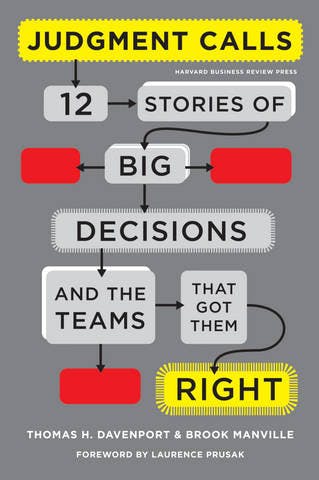You’ve no doubt watched someone do something stupid and wondered about their common sense.
Like resigning a good job in a fit of anger before landing a new one. Like blowing a wad of money on a whimsical purchase to impress someone they hardly know. Like dashing across an 8-lane freeway at night with speeding traffic in all directions.
Among the reasons CEOs cite for their bad judgment, the most common is that they have misjudged the judgment of others.
Assessing someone’s judgment
We have a plethora of skills tests, intelligence tests, emotional tests, and psychological assessments. But can you test someone’s judgment?
That’s why the Judgment Index piqued my interest when it popped into my email inbox a few weeks ago. It was developed as the Hartman Value Profile by the late Robert S. Hartman, PhD and pioneered by Judgment Index President C. Stephen Byrum, PhD, at Yale’s Institute for Excellence.
The assessment promised that with two — yes, only two — questions and approximately 15 minutes invested I could measure my judgment in seven (7) areas to see if I was ready for executive responsibilities.
Since I’ve been operating at that level for three decades, I decided it might be time for an objective scorecard other than the balance sheet. In addition to the intrigue of the topic, the two matching questions and their relationship to judgment seemed no less fascinating.
A scorecard approach to leadership judgment
To say I was astounded at the 92 percent accuracy on a database of 8,000 test-takers and the originality of the Judgment Index is an understatement. It was as if I’d been told to touch my nose 10 times, and the test accurately reported my three favorite colors.
As for a judgment “score card” on the job, communication applications like these come to mind:
- Can a leader determine whether her feedback is motivating or demoralizing the staff?
- How much information should the sales agent communicate to a client about your internal discussions?
- Should a hot topic be discussed privately or in staff meeting?
- How important is it to understand why a strong team or individual may have tremendous difficulty relating to your external client?
- At what point does a strong work ethic lead to an out-of-balance life and become detrimental to one’s health—and lead to a retention problem for the organization?
All these issues require sound judgment. Some people have it; others don’t. The degree to which your team members have good judgment determines their success and that of your entire team.
You know it when you see it
You’ve heard it said, “If you can’t measure something, you can’t manage it.” Placing metrics around that hard-to-identify quality of judgment can make all the difference in successful hiring, safety, health and well-being, innovation, and employee morale.
Put another way: judgment is hard to identify until you see its opposite on display. In our complex world with complicated decisions facing us every day, even the smallest insight can make the critical difference in outcomes.
And that’s a judgment call.
(Note: No, I have no connection to the Judgment Index or this firm — other than curiosity!)
This was originally published at BooherResearch.com.
